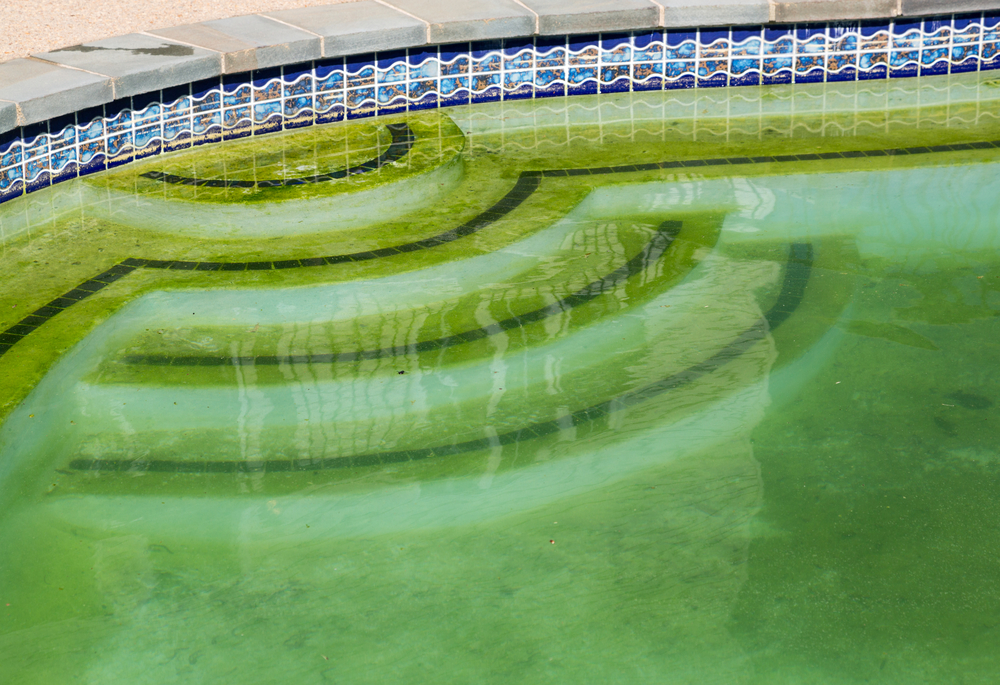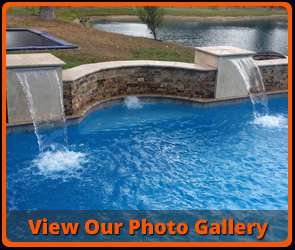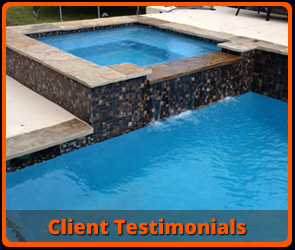Algae is a simple non-flowering plant of a large group that includes the seaweeds and many single-celled life forms. Algae contains chlorophyll but lack true steam, roots, leaves and vascular tissue.
There are three types of algae that like to form in your swimming pool:
- Green Algae
- Black Algae
- Mustard / Yellow Algae
Green Algae
Green Algae can be many different shades of green from dark green, blue green, even a yellow green. Green algae is the most common type of swimming pool algae. It can float freely or cling to walls and steps. If green algae is left untreated it could clog and damage the filter as well as damage pool surfaces like pool plaster.
Black Algae
Black algae is a dark blue green color and they find their home in the cracks and crevices of pool surfaces. They have deep, strong roots and if their roots aren’t killed properly and fully they can easily come back. This type of algae is one of the most difficult to get rid of.
Mustard / Yellow Algae
Mustard or yellow algae, is yellow in color and is commonly mistaken as dirt or sand. It usually likes to cling to the wall and in the shady spots of the pool. Mustard algae can be difficult to get rid of because it is resistant to normal levels of chlorine.
Preventing algae from taking a hold of your swimming pool is simple enough. You just need to make sure you’re keeping up with your weekly pool services. On a weekly basis you should make sure your chemicals are properly balanced, you vacuum any dirt up, net out any leaves and scrub the walls with a pool brush. No one wants to swim in a pool where algae has started to grow. It can harbor harmful bacteria that can potentially make us sick. It takes time, work and effort to get rid of algae, so be sure to take care of your pools needs to prevent algae growth!
If you are looking for high-quality, efficient pool service and repair, look to us, Sahara Custom Pools. We provide quality and consistent pool maintenance and repair service! We have a large variety of services for your pool maintenance needs. Click HERE for more information.




